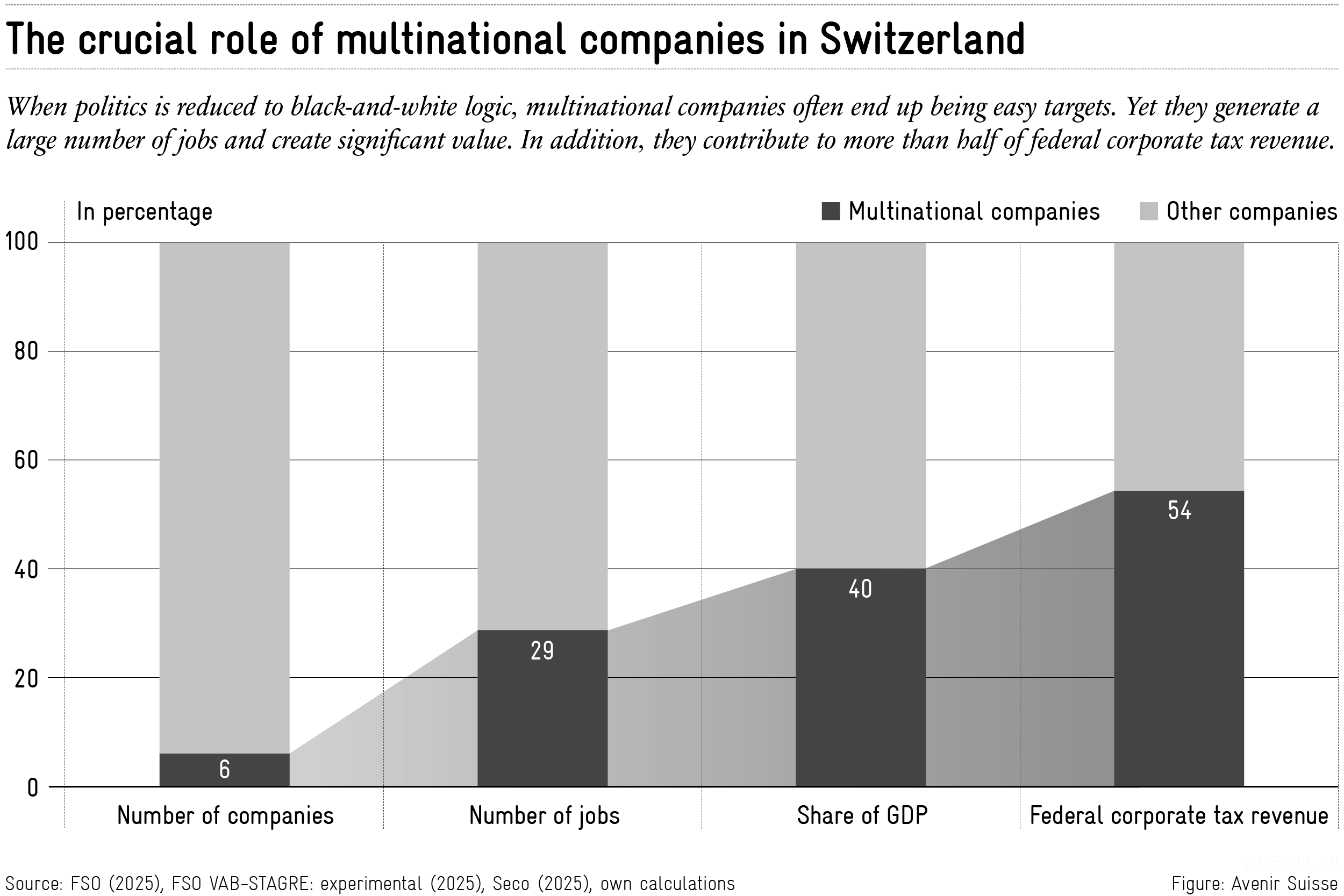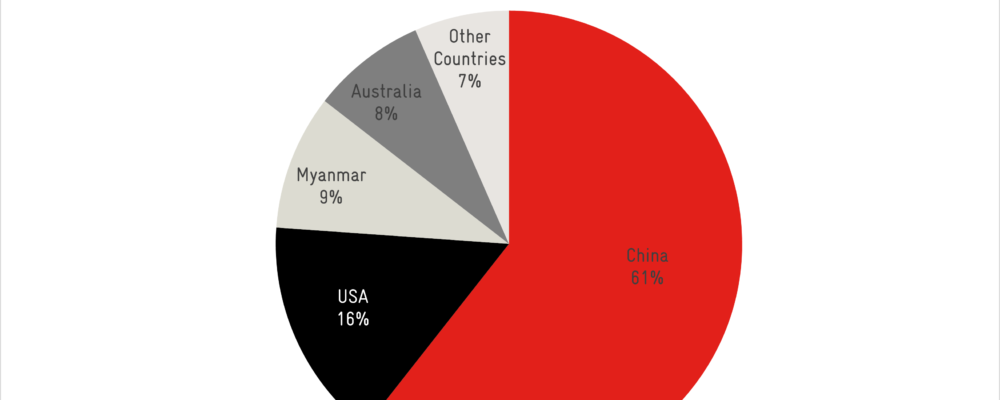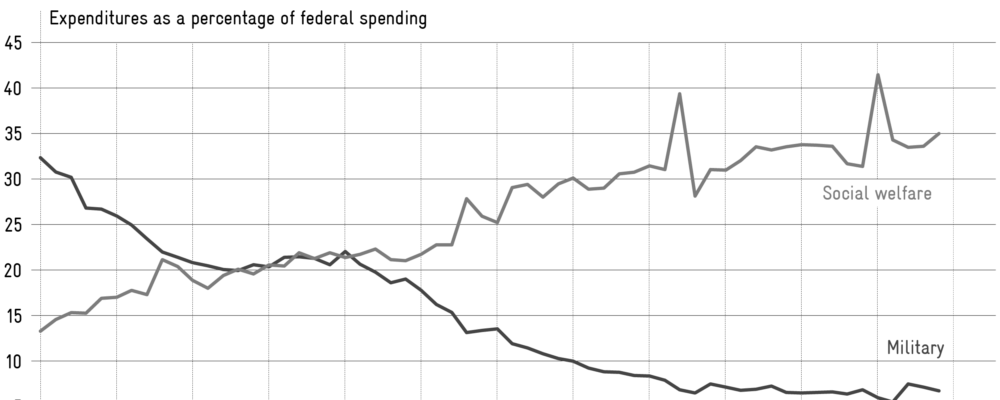The growing clash between opposing camps in the United States didn’t start with Donald Trump’s second term as president. The rhetoric is marked by black-and-white thinking. In Switzerland, we this development raises deep concern, and rightly so. Especially when it comes to complex issues, public debate can slip quickly into overly simplistic patterns, even in this country.
When success becomes suspect
For example: the 39 percent tariffs imposed on the Swiss National Day led some observers to embrace a truncated trade-balance logic. Consequently, Basel’s pharmaceutical firms and the gold industry suddenly became suspect. After all, they export disproportionately to the U.S. That gave rise to overly simplistic proposals. Some floated the idea of directly intervening in how pharma companies set prices abroad, whilst others demanded export taxes on gold.
Such an approach is not only economically questionable, it also reveals a domestic political dynamic: reacting to a complex reality with overly simple “solutions.” Far too often, companies are lumped into the categories of “good” and “evil.” No one is safe. Today pharma firms and gold producers are facing backlash and tomorrow it might be insurers and financial institutions and later machine tools or watchmakers.
The “good” and the “evil”, a misleading logic
This divisive rhetoric existed before Trump. For instance, there’s talk of a “responsible multinational companies initiative,” not a “responsible business initiative.” The popular initiative, which failed the “Ständemehr” (majority of the cantons), will soon return to the ballot box in a new form. Behind it lies the same black-and-white logic, this time focusing on the size of companies: small and medium enterprises (SMEs) are good, big corporations are evil.
But what fundamentally separates the two types of companies? Aside from size, not much. In the end, every large corporation began as a successful SME, sometimes even several. Roche, for example, was founded in Basel in 1896 by Fritz Hoffmann-La Roche and Novartis evolved from various small Basel chemical firms. Nestlé’s story also features an immigrant, Henri Nestlé, who in 1867 developed a powdered milk formula to reduce infant mortality.
These firms did not grow because they “turned evil,” but because they successfully addressed global problems. After milk powder, Nestlé revolutionized coffee worldwide, first with Nescafé in 1937 and later with Nespresso in 1986. Such innovations are the bedrock of success for Swiss firms, large or small.
A windfall for the country
When Swiss firms succeed abroad, economic windfall follows. The numbers are impressive: multinational firms today make up only 6 percent of all Swiss firms, but provide 29 percent of jobs, over 1.5 million positions. They generate 40 percent of Switzerland’s total value added (800 billion Swiss francs). No wonder the International Monetary Fund recently highlighted the pivotal role of large multinational companies.
These firms are also central to the functioning of Switzerland’s civic system. Multinational companies pay about half of all federal business taxes. According to the Handelszeitung, the “Big 5” (Roche, Nestlé, Novartis, UBS, Zurich) paid 3.5 billion Swiss francs in Swiss taxes last year, which corresponds to more than half of what the country currently spends on national defense. Without these formerly small firms, Switzerland would be much poorer.
Towards a disarming of rhetoric
Historically, Switzerland has always been aware that sound economic policy does not classify businesses into “good” and “evil.” For this reason, on the one hand, it has refrained from favoring or binding specific industries. On the other hand, the defense of good general conditions has repeatedly found majorities, including fair taxation, a liberal labor market, and lean regulation.
One thing is clear: Trump’s trade policy is a challenge, not a catastrophe. Switzerland has faced bigger crises before. What matters is a prudent adaptation of economic policy to new realities. It should not be enemy images that set the direction, but the strengthening of structural advantages. So that every Swiss firm can continue to succeed, from the smallest gold producer to the largest multinational company.
The alternative would be disastrous: a country that views its most successful companies as a problem and regards growth as suspicious. With this mindset, Switzerland would harm itself more than any American tariff ever could.
This article was published (in German) in the «Neue Zürcher Zeitung» on October 1, 2025.
“Avenir Suisse is an independent think tank that works for the future of Switzerland by developing evidence-based, liberal, free-market ideas.”
Please visit the firm link to site





